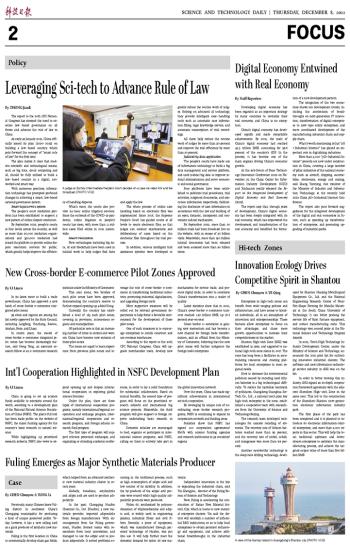
In its latest move to build a trade powerhouse, China has approved a new batch of cross-border e-commerce integrated pilot zones.
33 cities and regions are among the list newly approved by the State Council, including Langfang, Yuncheng, Baotou, Anshan, Heze, and Lhasa.
In recent years, the model of cross-border e-commerce integrated pilot zones has become increasingly mature, said Hong Yong, an associate research fellow at an e-commerce research institute under the Ministry of Commerce.
This year alone, two batches of such pilot zones have been approved, demonstrating the country's resolve to further expand opening up, added Hong.
Currently, the country has established a total of 165 such pilot zones, covering 31 provinces, autonomous regions and municipalities.
Of particular note is that an increasing number of cities in central and western China have become new entrants of these pilot zones.
The zones are urged to learn experience from previous pilot zones and leverage the role of cross-border e-commerce in transforming traditional industries, promoting industrial digitalization, and upgrading foreign trade.
More supportive measures will be rolled out by relevant government departments to help foster a favorable environment for the development of these pilot zones.
One of such measures is to encourage enterprises to jointly construct and use overseas warehouses.
According to the report to the 20th CPC National Congress, China will upgrade merchandise trade, develop new mechanisms for service trade, and promote digital trade, in order to accelerate China's transformation into a trader of quality.
Latest statistics show that in 2021, China's cross-border e-commerce turnover reached 1.92 trillion RMB, up 18.6 percent year-on-year.
Cross-border e-commerce is gaining new momentum and has become a new channel for foreign trade transformation, said an official from the Ministry of Commerce, believing that the new pilot zones will further invigorate the foreign trade enterprises.


 Next
Next




